Journeys to Adäka
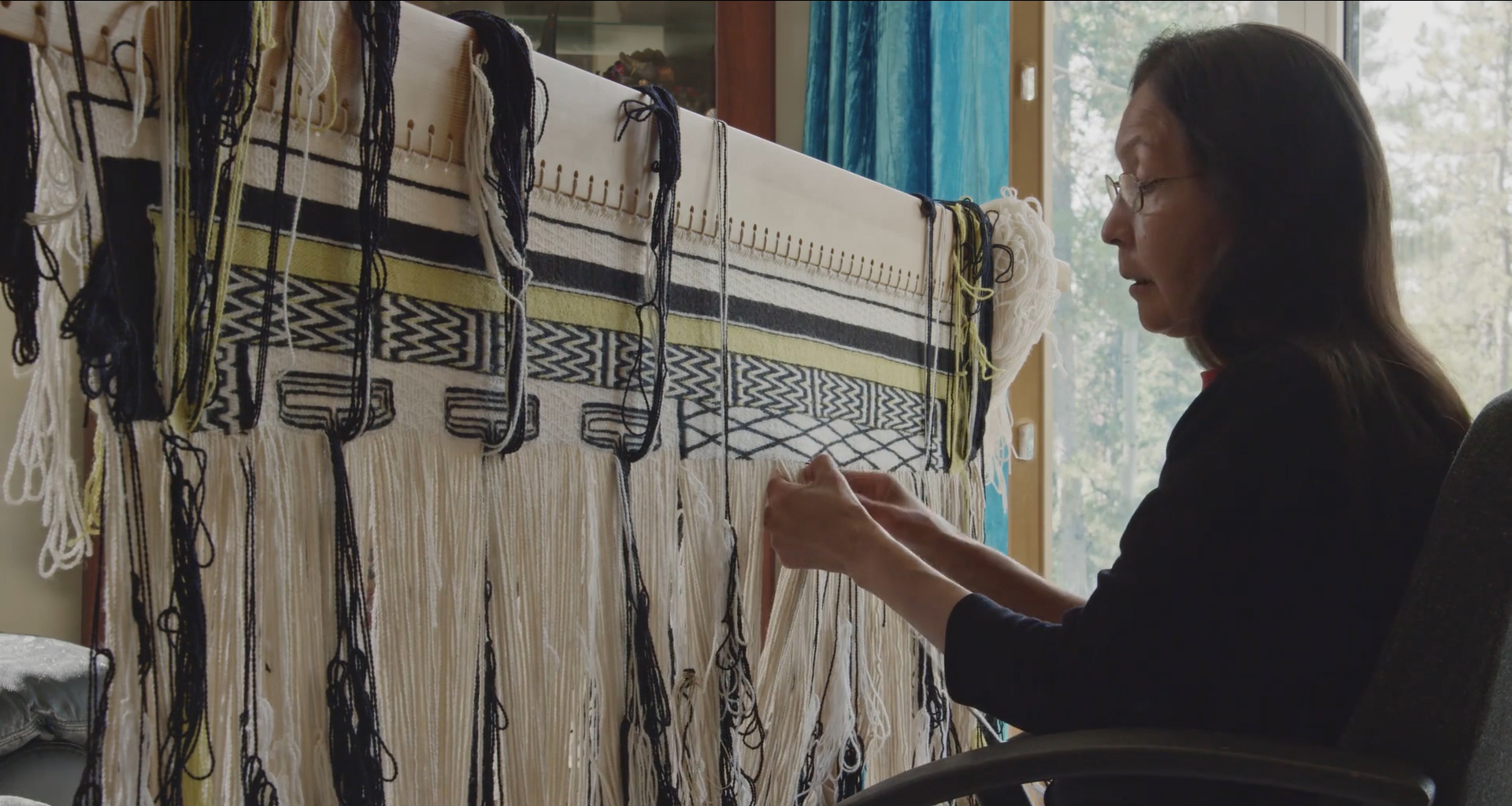

Journeys to Adäka is the story of seven indigenous artists who look to the past for the strength to overcome a legacy of hurt, becoming cultural giants and leaders in the process.
This one-hour documentary follows its subjects as they prepare for the Adäka Cultural Festival in Whitehorse, Yukon, inviting viewers into carving sheds, kitchens, and community halls.
In these spaces, artists and their families are reconnecting with their ancestors, healing, and moving personal mountains to each find their light. The process is familiar — rehearsals, training, crafting — but the backdrop of distant northern communities and the intimate access serve up both difficult lessons and inspiration.
Journeys to Adäka paints a moving portrait of self-empowered indigenous communities at an inflection point in our history. This documentary was produced in association with Yukon First Nations Culture and Tourism Association.
The Filmmakers
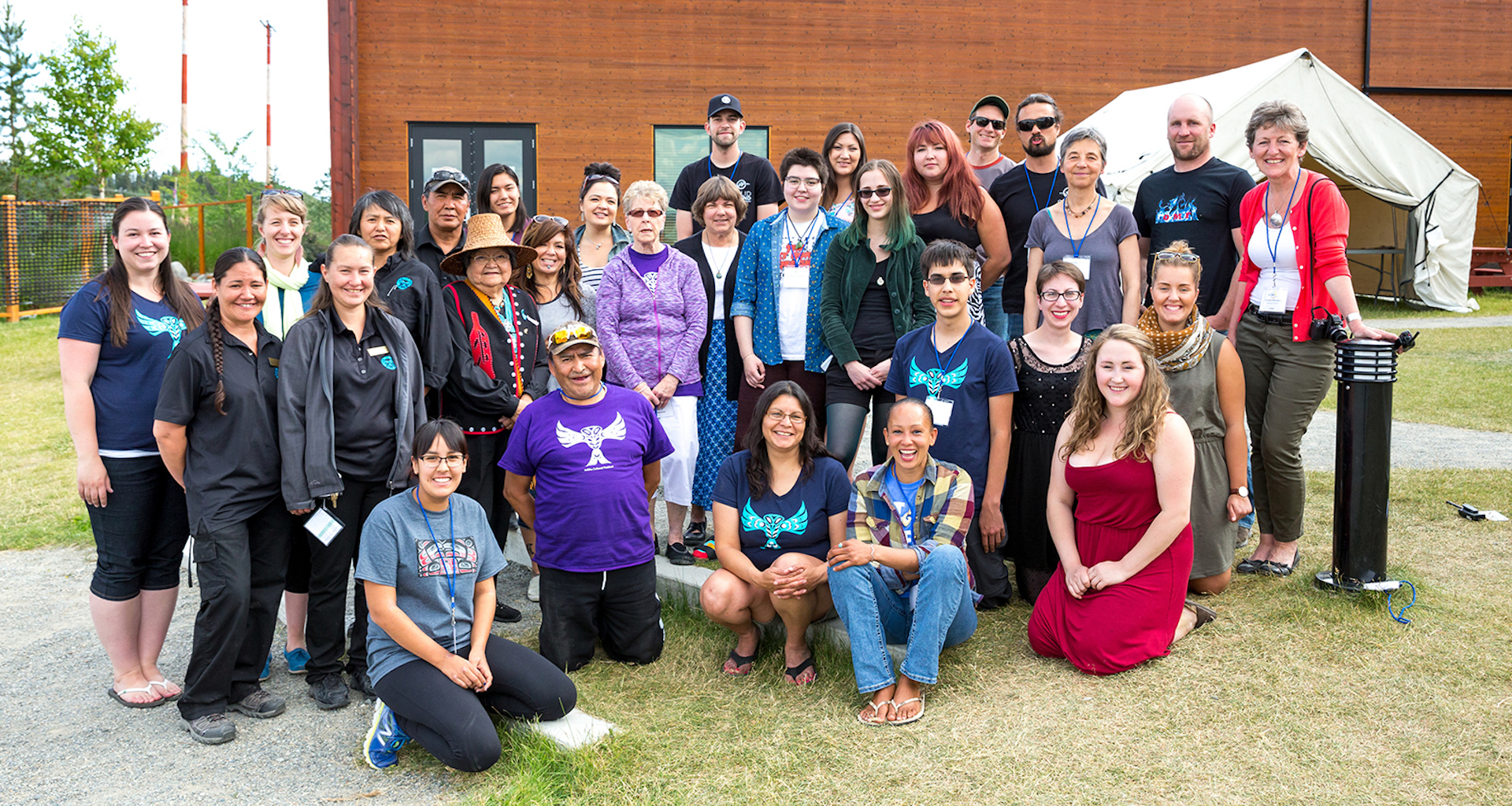
FRITZ MUELLER
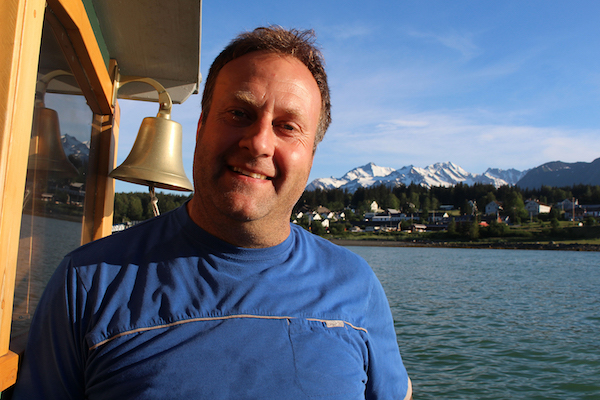
Director/DP Fritz Mueller came to the Yukon as a research scientist working on his graduate thesis and has worked across the North as a biologist and photographer. For over two decades he’s been chasing stories across Canada’s North, focusing his lens on a wide range of subjects from migrating caribou to national parks to indigenous communities.
Fritz has been the official Adäka photographer since the festival’s inaugural year. He’s a Fellow of the Royal Canadian Geographical Society and a member of Screen Production Yukon Association, Yukon Film Society, DOC and European Documentary Network. His second TV documentary, Aurora Love, is in post-production.
TERESA EARLE
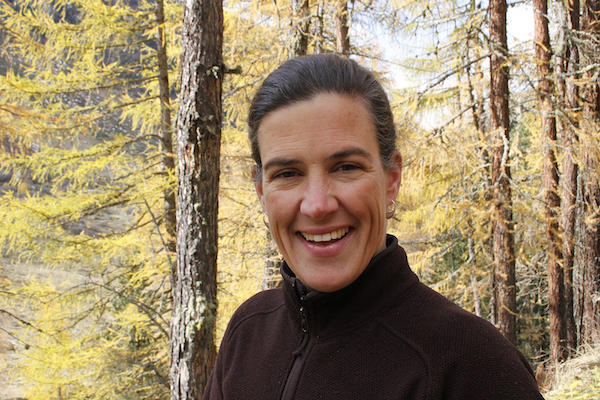
Producer, editor and writer Teresa Earle is completing two documentaries and two digital media projects produced and filmed in the North. She is a seasoned creative professional with 20 years of experience producing projects as diverse as videos, books, websites and exhibits.
Teresa is a member of DOC, Women in Film + TV Vancouver, Yukon Film Society, and she is a board member of Screen Production Yukon Assn.
YUKON FIRST NATIONS CULTURE & TOURISM ASSOCIATION
Journeys to Adäka is the result of a decade of collaborations between YFNCT, the film’s director and producer, and Yukon’s indigenous artists, performers and culture bearers. In addition to making a funding commitment, YFNCT’s president, board members, and executive director served as advisors and partners in the making of the documentary. The organization supports Yukon First Nations artists, performers, cultural centres and tourism entrepreneurs, and also presents the Adäka Cultural Festival, a world-class multi-disciplinary cultural festival held every summer at the Kwanlin Dün Cultural Centre in Whitehorse.
FILM CREDITS
Director FRITZ MUELLER
Producer TERESA EARLE
Associate Producer CHARLENE ALEXANDER
Director of Photography FRITZ MUELLER
- Additional Camera MIKE RUDYK, JULIA SZUCS
- Aerial Camera TOM DOUGLAS, BRIAN CAMERON, FRITZ MUELLER
- Sound Recording FRITZ MUELLER, TERESA EARLE, STACKWALL SOUND
- Production Support TERESA EARLE, CAILI STEEL, COURTNEY WHEELTON, CHERRI PRICE, SHAHEEN BAKER, DUSTIN SHELDON, JULIA SZUCS, CAPITAL HELICOPTERS, UP NORTH ADVENTURES, GYRONIMO AERIALS
- Editors TERESA EARLE, JENN STROM
- Composer and Sound Design JORDY WALKER
- Colour FRITZ MUELLER
- Trailer JENN STROM
- Writer TERESA EARLE
- Story Consultants JENN STROM, FRITZ MUELLER sr.
- Stills Photography FRITZ MUELLER
- Design MARY BINSTED
- Website GEOF HARRIES
FEATURING
- CARMEN BAKER
- GARY JOHNSON
- WAYNE PRICE
- CHANTAL RONDEAU
- DENNIS SHORTY
- ANN SMITH
- DIYET VAN LIESHOUT
The Artists
CARMEN BAKER
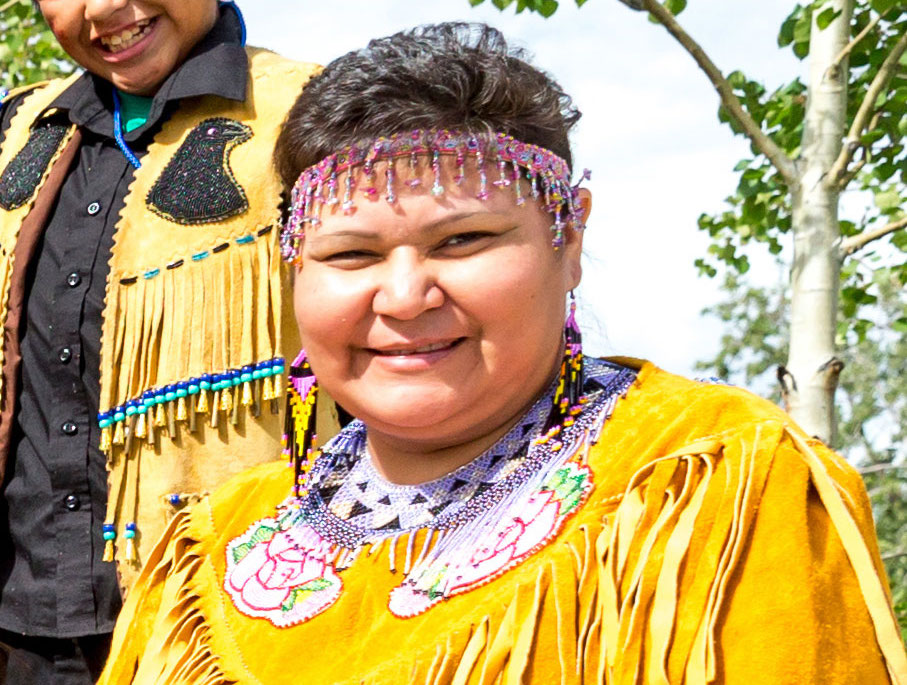
Carmen Baker is the indefatigable leader of the Selkirk Spirit Dancers, a Northern Tutchone dance group comprised mostly of children and youth numbering close to 40 dancers. Carmen is Northern Tutchone and Tlingit from the Crow clan and a member of Selkirk First Nation from Pelly Crossing in central Yukon.
Dance troupe leader, community organizer and mother of six, Carmen personifies the leadership and commitment that forms the core of cultural revitalization in many small indigenous communities.
The Selkirk Spirit Dancers rehearse weekly in the recreation centre in their village, and they fill several vans for the long journeys to perform at festivals across the North. In just a decade the group has built a dedicated following and recently performed in Alaska and Oregon.
GARY SIDNEY JOHNSON
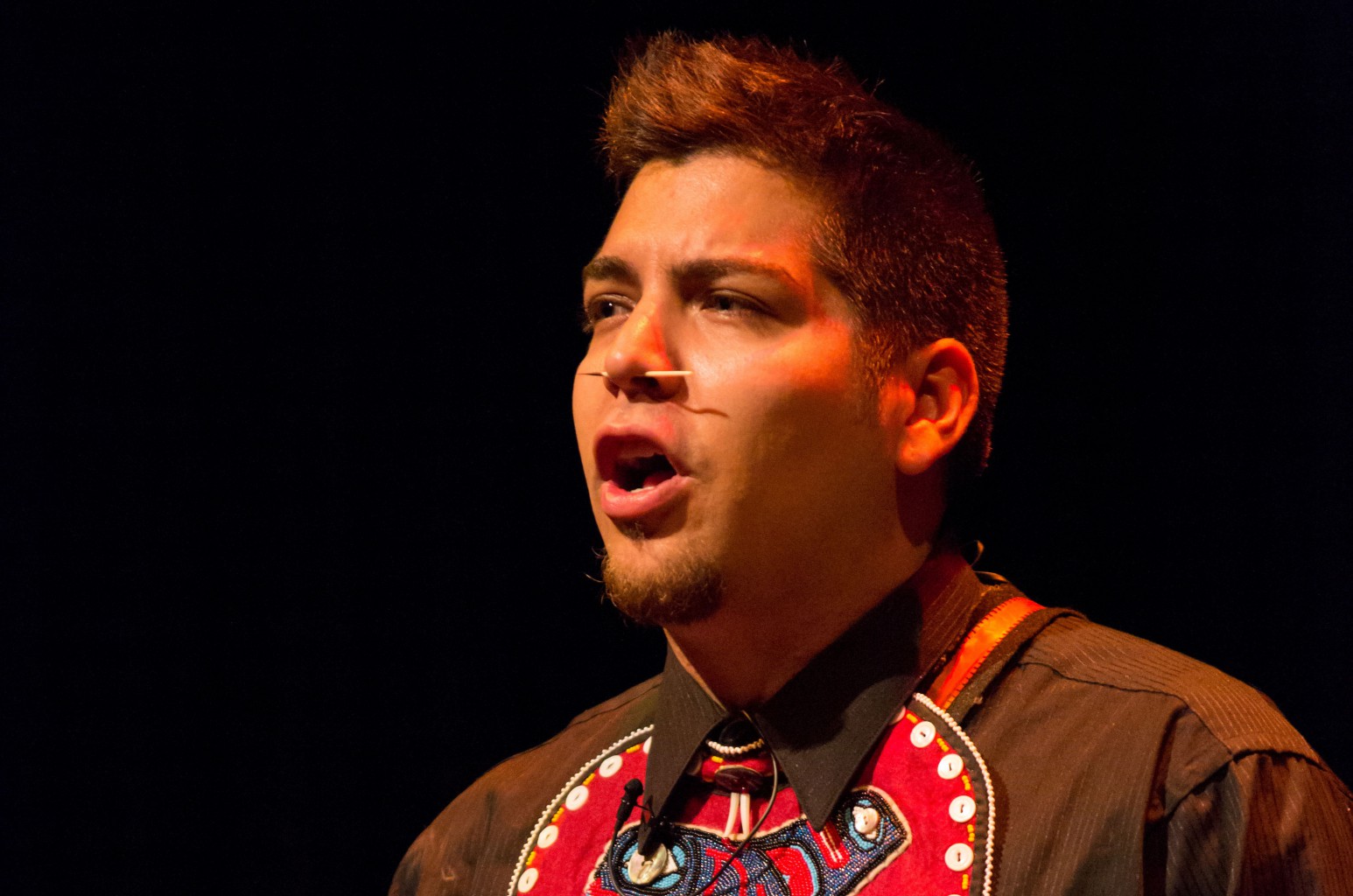
A young Tagish and Inland Tlingit man from the Carcross area, Gary Sidney Johnson is helping to revive cultural traditions in his community. A member of Carcross/Tagish First Nation, Gary is a drummer, singer, performer and native language teacher. He teaches dancing and Tlingit to adults and children, and he is a regular presence at community events.
Gary is part of the Dakhká Khwáan Dancers, a troupe of semi-professional Inland Tlingit performers from Southern Yukon. The dancers have performed at the Olympics, in New Zealand, at the Smithsonian, at the Pan-Am Games, and across Canada. They won Canada’s national cultural tourism award.
The DKD have a punishing schedule of practices and performances, and Gary has additional responsibilities as a song leader. The DKD also have a junior group of youth dancers.
WAYNE PRICE
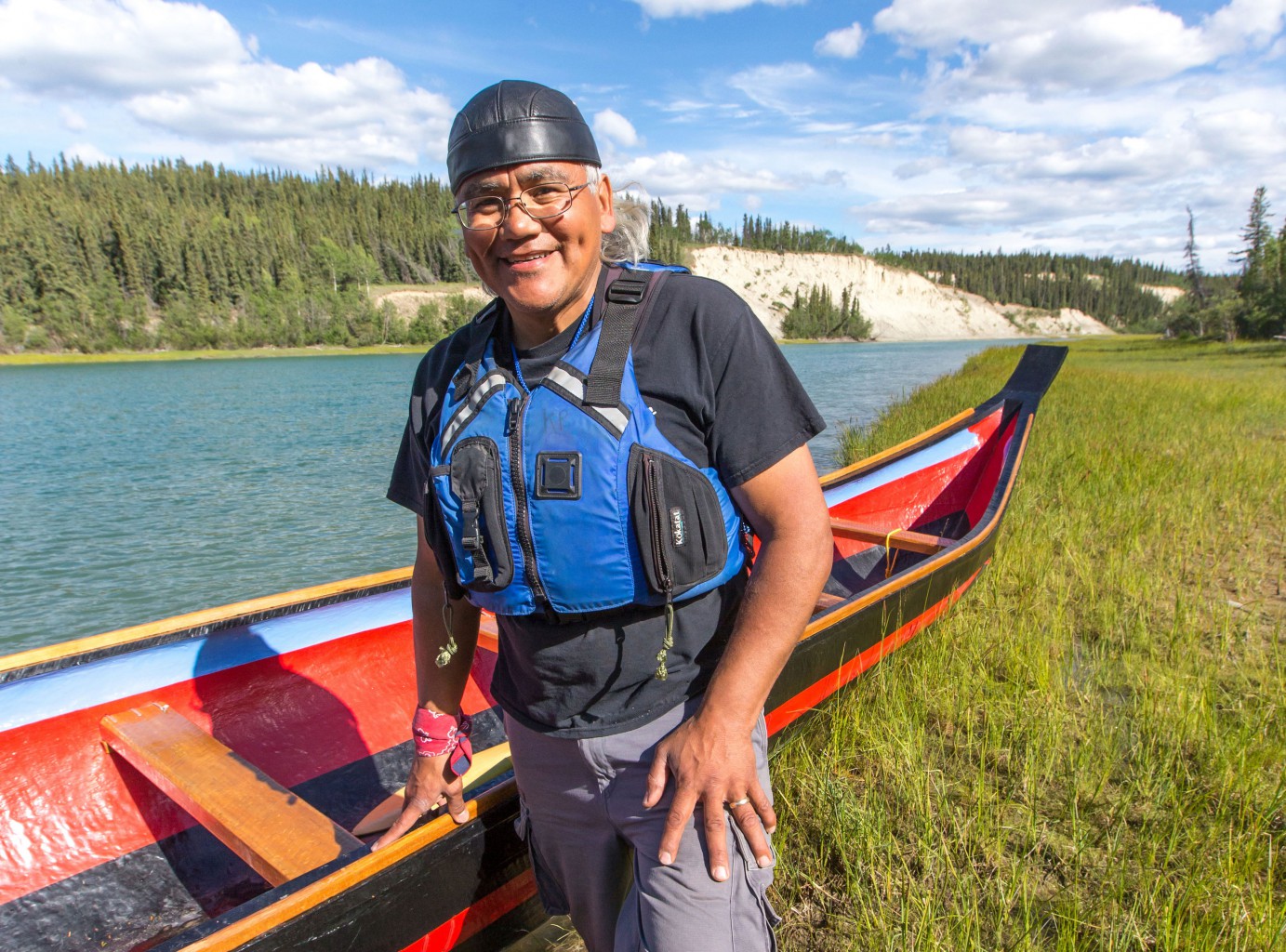
Wayne Price has accumulated more than a lifetime of healing in his career as a Tlingit master carver. After years of self-destructive behaviour, Wayne had a vision quest that changed his life. Today he is one of the most accomplished carvers in Alaska, though his true calling is as a mentor.
Wayne and Cherri Price operate Silvercloud Art Center in Haines, Alaska, and run the North Tide Canoe Kwaan paddling group. Wayne has helped revive traditional dugout canoes and the Tlingit connection with the sea in Southeast Alaska.
Wayne has also found kinship and support among his inland relations. For years he’s travelled back and forth across the mountains to Southern Yukon, sharing his knowledge and skills with First Nations artists and youth in Whitehorse.
CHANTAL RONDEAU
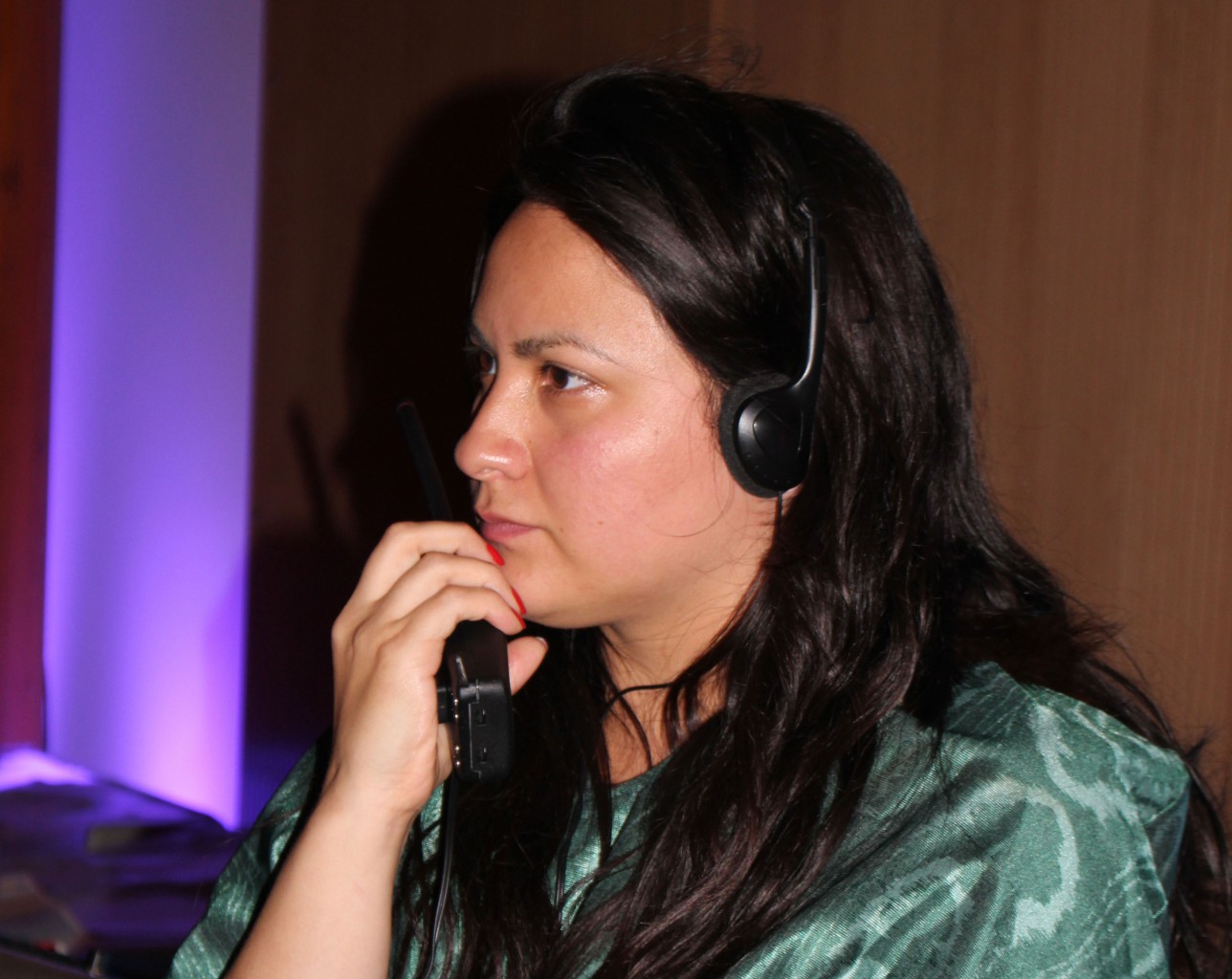
Chantal Rondeau is a Northern Tutchone/Acadian broadcast journalist, filmmaker, fashionista, and social media dynamo. She’s a member of Little Salmon Carmacks First Nation, and though she thrives on her globetrotting lifestyle, she’s equally content at fish camp near Carmacks in central Yukon. Fashion is her passion, and she is the producer of the most ambitious indigenous fashion show in the North.
Chantal is at home online where she’s an advocate for indigenous artists and is outspoken about cultural appropriation. She’s opinionated and well-informed, and over the past decade she became an online presence for indigenous news and pop culture with her blog, The Life and Times of a Modern Day NDN Princess.
Chantal was recently listed in the top 5 northern indigenous voices to follow on Twitter. Chantal lives in Colorado with her partner and baby daughter.
DENNIS SHORTY
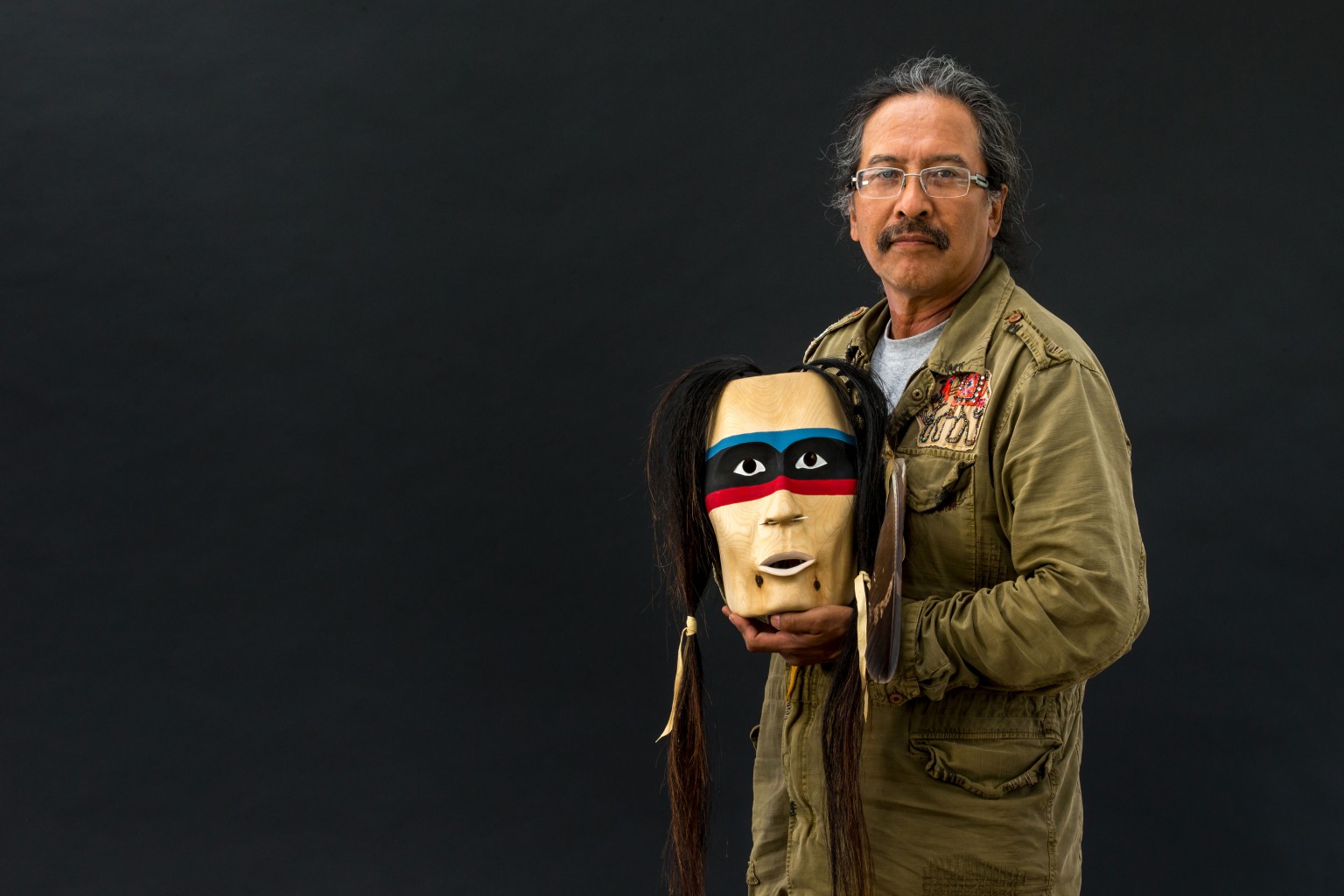
Dennis Shorty is a Kaska Dena sculptor who has spent most of his life near Ross River, Yukon.
Dennis has overcome addictions and abuse to become one of the Yukon’s most accomplished carvers. His works are in collections around the world, and his successes take him to Europe and across North America. A skilled woodsman and hunter, Dennis spends much time out on the land and remains connected to his traditional ways.
Dennis is also a drummer and singer. He speaks and writes songs in the Kaska language, which connects him with his past and provides inspiration for his music. Dennis teaches and leads drum circles and often drums with the Kaska Dena Drummers. Dennis is also in a band, Dena Zagi, with his German-born wife Jenny. She is at Dennis’ side through everything, including the painful process of reconciliation as a victim of residential school.
Their band plays original songs written in the Kaska language about things that are very important to Dennis: his ancestors, his traditional ways, animals, Mother Earth, healing.
ANN SMITH
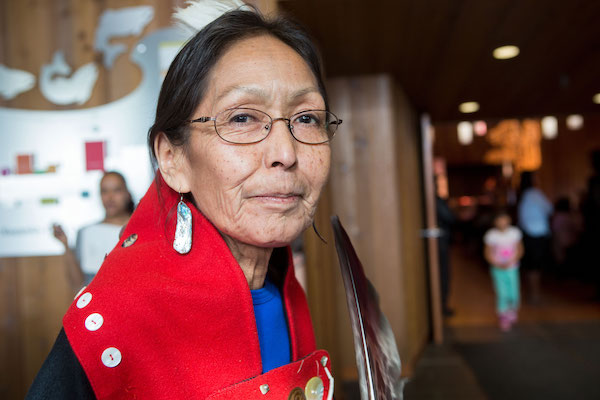
Renowned ravenstail weaver, former chief, respected elder and great-grandmother Ann Smith is a member of Kwanlin Dün First Nation. Ann is one of the busiest people in her community. Her schedule is determined by the activities of 11 grandchildren and a slate of volunteer commitments. Ann steals hours to sit at her loom, where she weaves ravenstail dancing blankets. A fine craft revived after being lost for a century, Ravenstail weaving is painstakingly slow. Regalia created by Ann are held in collections and galleries around the world.
Ann’s husband Brian Walker is a master copper artist. Their community has seen more than its share of tragedy, and Ann and Brian use traditional craft, ceremony and reconnecting with the past to offer support. They live next to the Yukon River near downtown Whitehorse.
DIYET VAN LIESHOUT
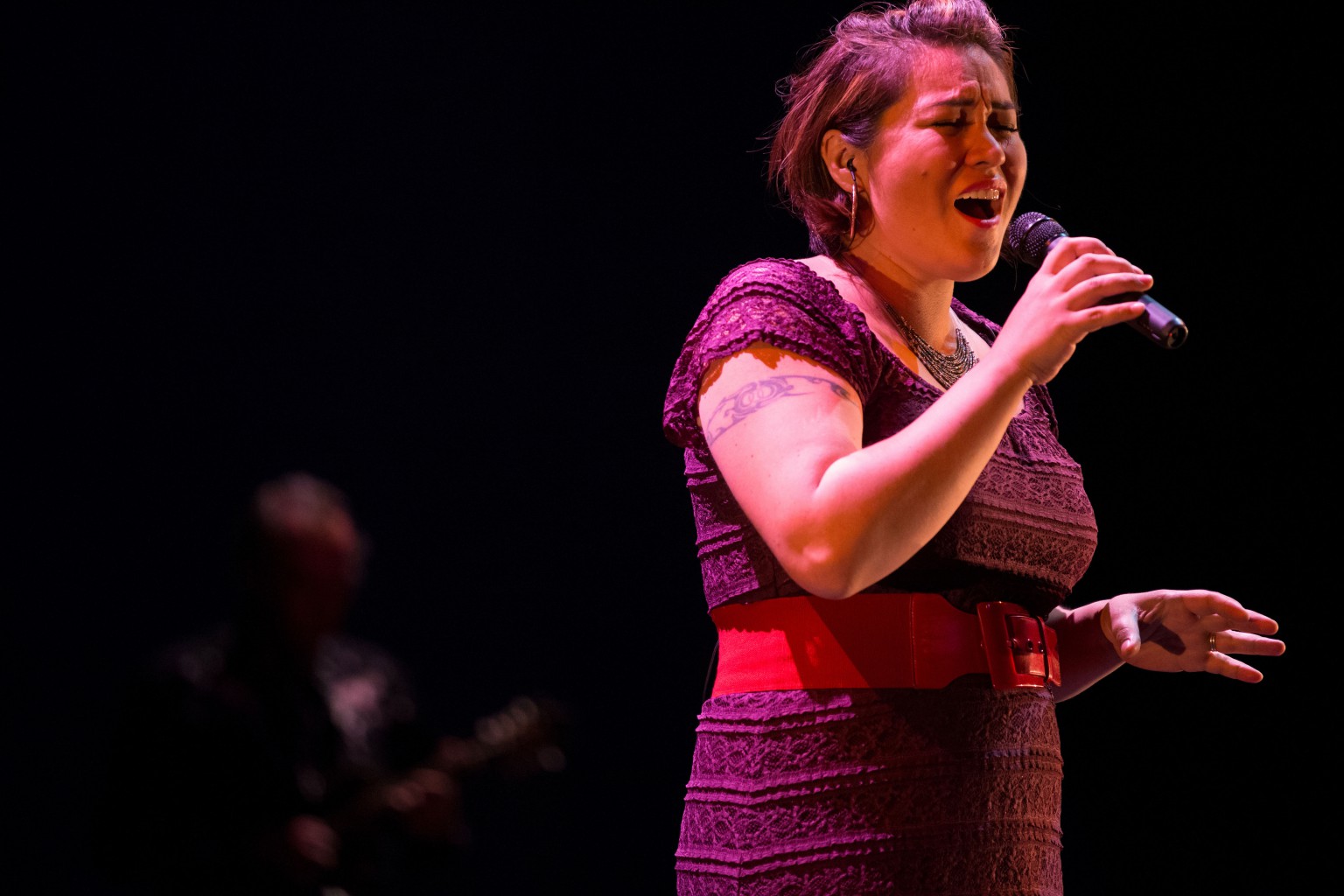
Born in a tent and raised in the Southern Tutchone village of Burwash Landing, Diyet is an accomplished songwriter and singer. Diyet has had to dig deep, first finding her voice as a child, leaving home to pursue her dreams, building a hard-scrabble career, and eventually choosing to come back to Burwash Landing where she found fulfilment and success as a recording artist.
A member of Kluane First Nation, Diyet is blending old and new in music and life. She juggles traditional activities and a young family with touring and the demands of a career in music. She writes and sings in English and Southern Tutchone.
Her debut album, The Breaking Point, was nominated for “Best New Artist” and “Songwriter of the Year” at the Aboriginal People’s Choice Music Awards in 2010 and 2011, “Album of the Year” at the Canadian Aboriginal Music Awards and remained on the Canadian Aboriginal Music Countdown for 24 weeks. She released her second album, When You Were King, in 2013, and a new album is in the works for 2017.
Adäka Cultural Festival

Established in 2011, Adäka Cultural Festival is an annual celebration of Yukon First Nations culture held in the Kwanlin Dün Cultural Centre on the Yukon River in downtown Whitehorse. The weeklong summer arts festival has quickly become a signature northern event that hosts hundreds of visual artists, performers, musicians and storytellers and attracts thousands of visitors.
For many festival participants the journey to Adäka is hard-won and deeply personal. Being a visual or performing artist is not an easy path. Most are juggling artistic pursuits with jobs, school, and family. Practice and performance schedules are rigorous, and a few must leave home to tour, train, and reach new audiences. But if they can make it to the festival, these talented artists find joy, support and inspiration, and they are fueling a cultural revival.
This story is playing out in communities across the country, as Canada’s indigenous people are coming together in unprecedented numbers at festivals, events, marches and rallies to celebrate their culture and traditions.
Media Kit

Text for Media Kit page.
